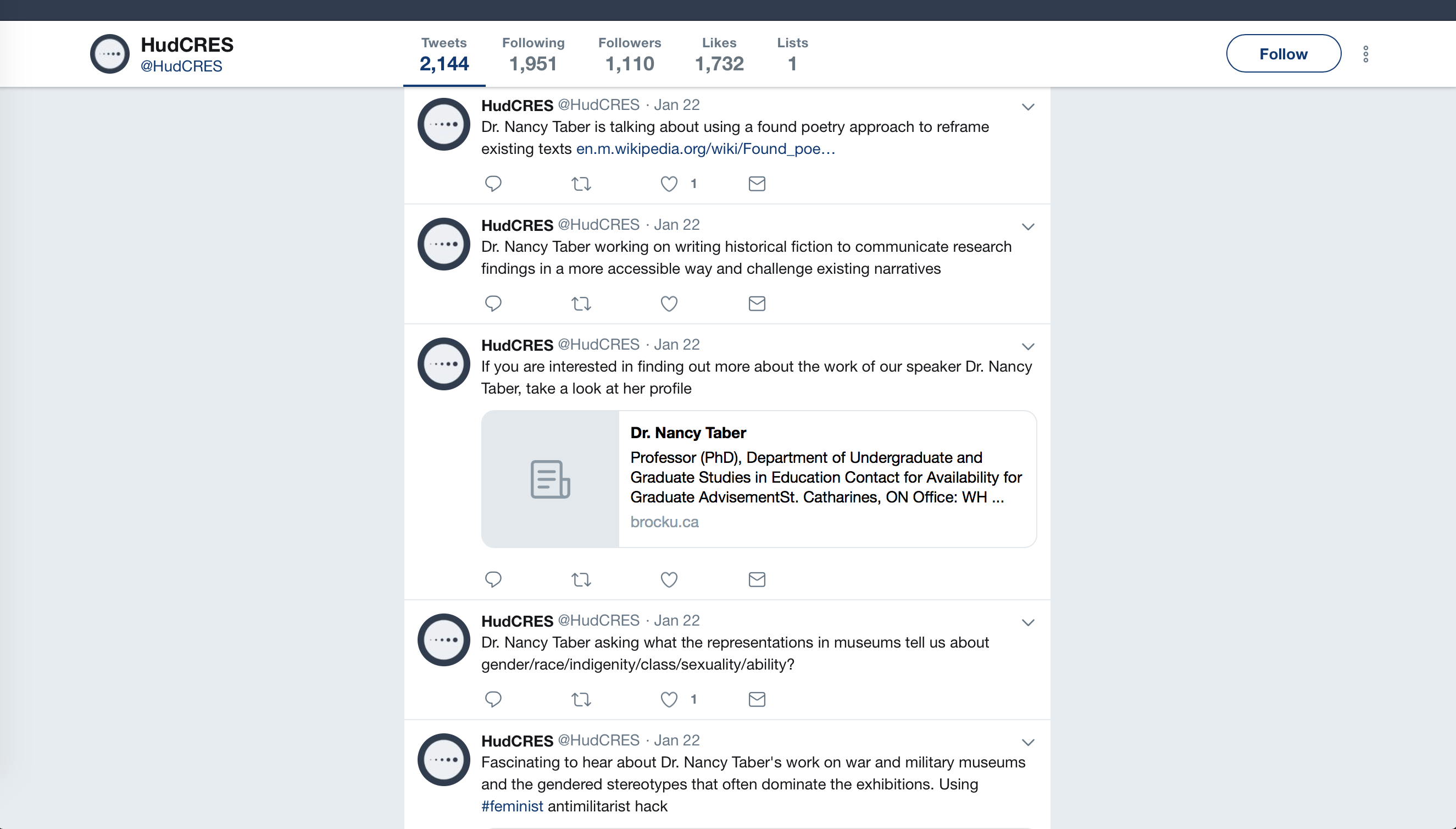Nancy Taber is a Professor in the Faculty of Education at Brock University. Her research explores the ways in which learning, gender, and militarism interact in daily life, popular culture, museums, educational institutions, and military organizations. Her work often builds on her experiences serving in the Canadian military as a Sea King helicopter air navigator. She is currently working on two collaborative Social Sciences and Humanities Research Council grants examining the intersection of gender and adult education in museums, wherein her focus is on war and military museums. Her recent books include Mothers, Military, and Society (Demeter Press – co-edited), Gendered Militarism in Canada: Learning Conformity and Resistance (University of Alberta Press), and Popular Culture as Pedagogy: Research in the Field of Adult Education (Sense Publishers – co-edited). Her most recent article is an exploration of gender discrimination, sexual harassment, and sexual assault as relates to culture, policies, and education in the Canadian Armed Forces, published in Critical Military Studies. She is currently writing a book of short stories and found poems based on her research in museums. Dr. Taber is a former President of the Canadian Association for the Study of Adult Education and the current Editor-in-Chief of the Canadian Journal for the Study of Adult Education.
In this presentation, which took place at the Huddersfield Centre for Research in Education and Society, Dr. Taber discussed her research as it relates to learning in the everyday, with a focus on popular culture and cultural institutions. She briefly explained her use of the lens of feminist antimilitarism to explore how gender and militarism intersect in lifelong learning contexts, often in hidden and unproblematized ways, using examples from children’s literature, film, higher education, memoirs, museums, and television. Her main focus was to provide details on her research in war and military museums (in Canada, Demark, and England), her use of the methodology of the feminist antimilitarist learning hack, and her research dissemination in the form of short stories and found poems. Dr. Taber argues that war museums, military museums, heritage sites, and exhibits about war/the military both glorify war and question it. They are contested sites of learning and of historical significance, with conflict over what is displayed, how, and by whom. The feminist antimilitarist learning hack deconstructs these sites by exploring issues of sacredness, heroism, patriotism, nationalism, patriarchy, and imperialism. She uses alternative forms of dissemination in order to make the exhibits come alive in engaging, creative, and accessible ways, to help readers/students think differently about museums as gendered pedagogical institutions. Dr. Taber believes that by using fiction as an entry point for discussion, readers/students can inhabit the characters and contexts in order to facilitate empathy, understanding, and questioning as well as apply these new learnings to their own lives.

